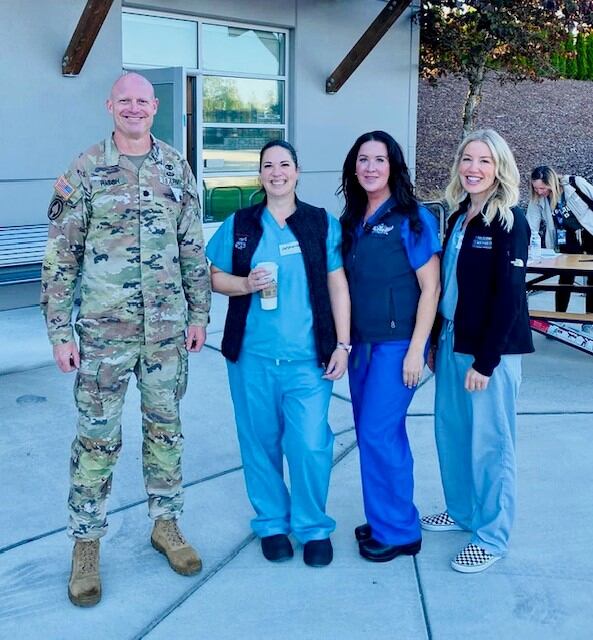Shortly after the May 24 shooting at Robb Elementary School in Uvalde, Texas, claimed the lives of 19 children and two teachers, Army surgeon Lt. Col. Quinton Hatch contacted local school districts in Washington state. Hatch had experience in trauma care, and he wanted to share it.
On Aug. 29, Hatch and other medical personnel from Madigan Army Medical Center, the Tacoma Trauma Trust and the Key Peninsula Fire Department partnered to offer trauma care instruction to nurses and school officials at Pioneer Elementary School in Gig Harbor, lessons comprising the same skills service members and medics are taught in basic combat lifesaver courses, Hatch said.
“Uvalde is what got me thinking there are a lot of similarities between what some of these schools are seeing and what we do down range, so that’s when I approached the schools,” said Hatch, who started his military career as a Marine Corps infantryman with combat experience.
The nurses, who have medical licenses and are eligible to teach these same courses to others, were taught how to use pressure dressings and tourniquets, how to keep people warm, and the measures to stop massive blood loss.

The next step, Hatch said, is to get more people involved — both Madigan personnel and civilian partners — to share the training with every school district in the state. The University Place and Kitsap County School districts will likely be the next to receive training, Hatch said.
Supplying every classroom in the state with medical supply kits similar to the Individual First Aid Kits issued to service members is another goal on Hatch’s radar. Numerous locals and organizations — such as the Tacoma Trauma Trust, a nonprofit providing trauma care for the western region of Washington and Hatch’s main civilian partner — are reaching out to state representatives to make that happen. Similar efforts, meanwhile, are being made in Texas, Arkansas, Indiana and Pennsylvania.
“This is no difference [between] teaching this kind of combat lifesaving care to medics or those down range,” Hatch said. “So, the thought process here is the same; these kinds of wounds can happen now, and with these basic, easy-to-use tools they can save lives.”
According to Hatch, base officials at Joint Base Lewis-McChord and those from Madigan Army Medical Center are in full support of future training events and supply donations. Base officials, however, were not available for comment.
Rachel is a Marine Corps veteran and a master's candidate at New York University's Business & Economic Reporting program.




